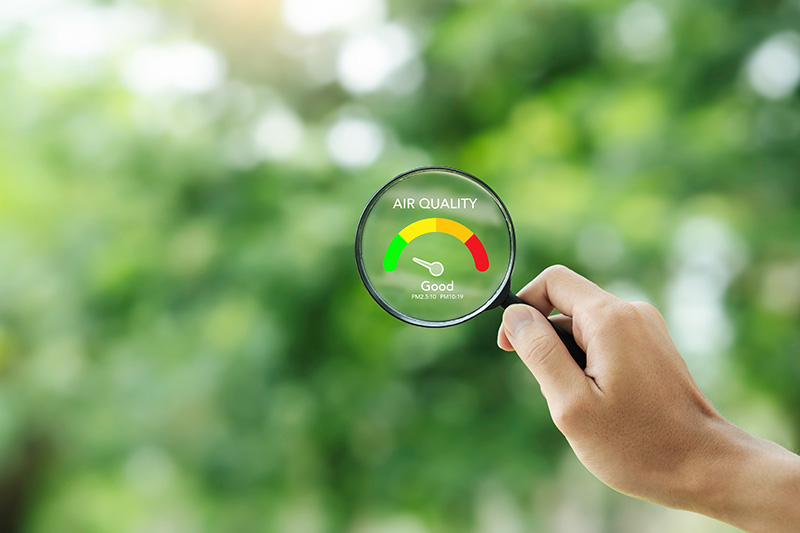Maintaining clean and healthy indoor air is essential for our well-being. But many people overlook the impact of indoor air pollution on our health. Poor indoor air quality can lead to various health issues and discomfort. In this blog, we discuss the repercussions of inadequate indoor air quality. We also provide practical and easy-to-implement ways to prevent indoor air pollution. We want to create a safer and healthier indoor environment for you and your loved ones.
Why Indoor Air Quality is Important
Indoor air quality influences our health and comfort due to several reasons. Poor indoor air quality can exacerbate respiratory conditions like asthma, allergies, and bronchitis. This can affect our ability to breathe. Clean indoor air promotes better sleep, concentration, and quality of life. This helps to contribute to our physical and mental health. Children and the elderly are very susceptible to the effects of poor indoor air quality. This is why you need a healthy indoor environment.
Consequences of Poor Indoor Air Quality
Poor indoor air quality can lead to various adverse effects on our health and our homes. Dust mites, dander, mold, and other allergens in the air can trigger allergic reactions. This can cause symptoms like sneezing, coughing, and itchy eyes. Indoor air pollutants can exacerbate existing respiratory conditions. This can lead to breathing difficulties, chest tightness, and coughing. Exposure to indoor air pollutants like VOCs can cause headaches, fatigue, and discomfort.
Easy Ways to Prevent Indoor Air Pollution
You have to maintain clean indoor air and prevent pollution within your home. Consider implementing the following simple strategies.
- Regular Cleaning. Dust, vacuum, and mop your home often. This can help reduce dust, pet dander, and other particles that can degrade indoor air quality.
- Proper Ventilation. Ensure adequate ventilation. Open windows when weather permits and use exhaust fans in kitchens and bathrooms. These can remove pollutants and improve air circulation.
- Houseplant Allies. Incorporate air-purifying plants like aloe vera, spider plants, and peace lilies. These can filter indoor air and enhance air quality.
- Avoid Smoking Indoors. Smoking indoors releases harmful chemicals into the air, polluting indoor spaces. Establish a smoke-free environment to protect indoor air quality.
- Track Humidity Levels. Maintain optimal humidity levels between 30% and 50%. This can prevent mold growth and reduce the proliferation of indoor allergens.
- Air Purifiers. Consider investing in HEPA air purifiers to capture airborne particles. It can also improve your home’s indoor air quality.
Contact Us
Prioritizing indoor air quality is crucial. You need to create a healthy and comfortable living environment. It’s important to recognize the consequences of poor indoor air quality. Adopting simple practices can prevent indoor air pollution. If you need help improving your home’s indoor air quality, contact us today. You can enhance the quality of the air you breathe and promote well-being for yourself.

